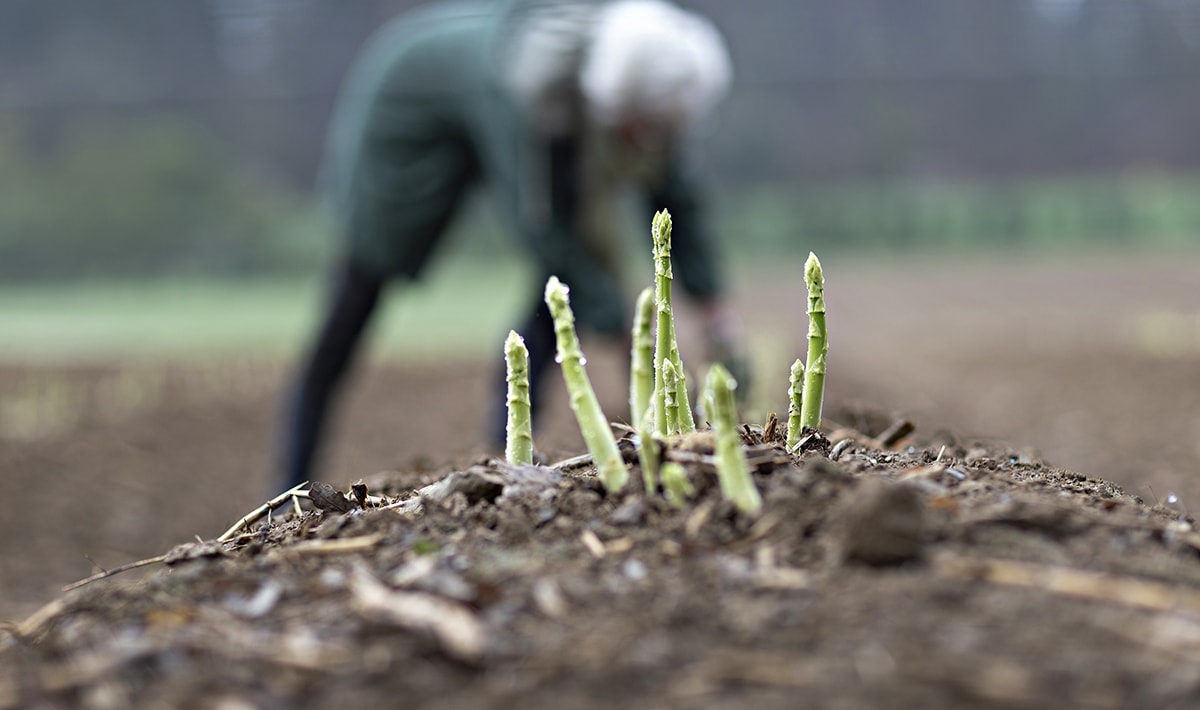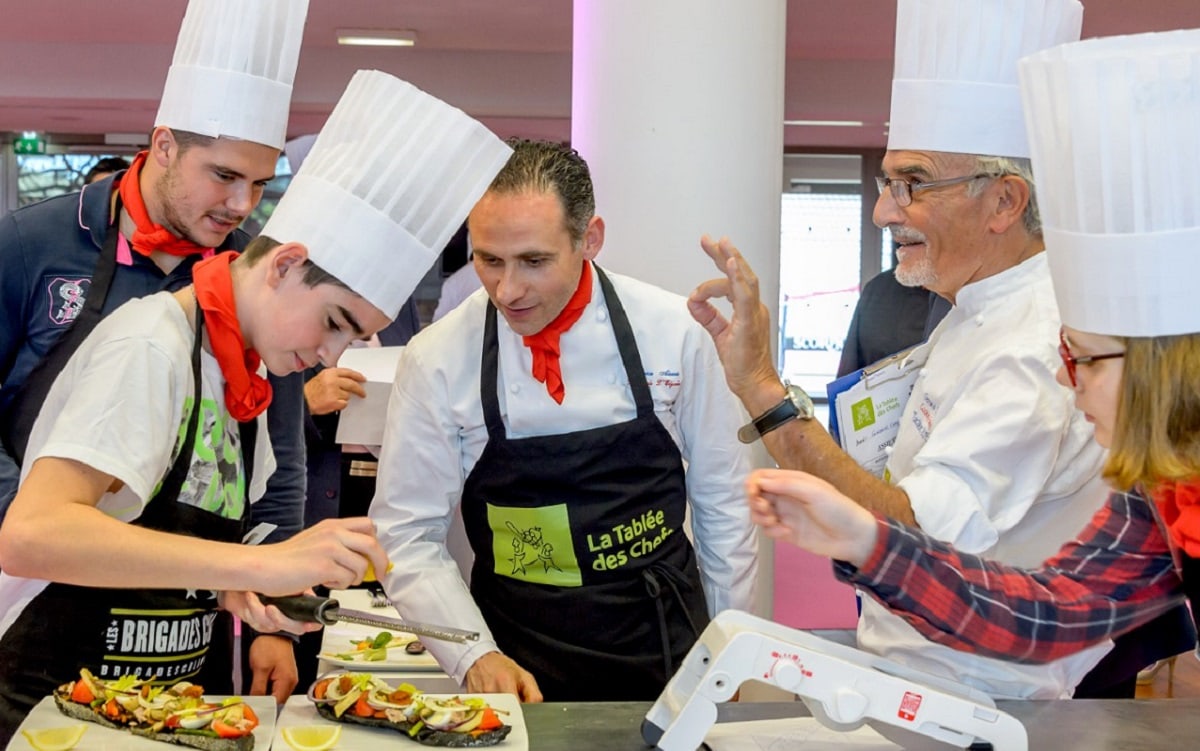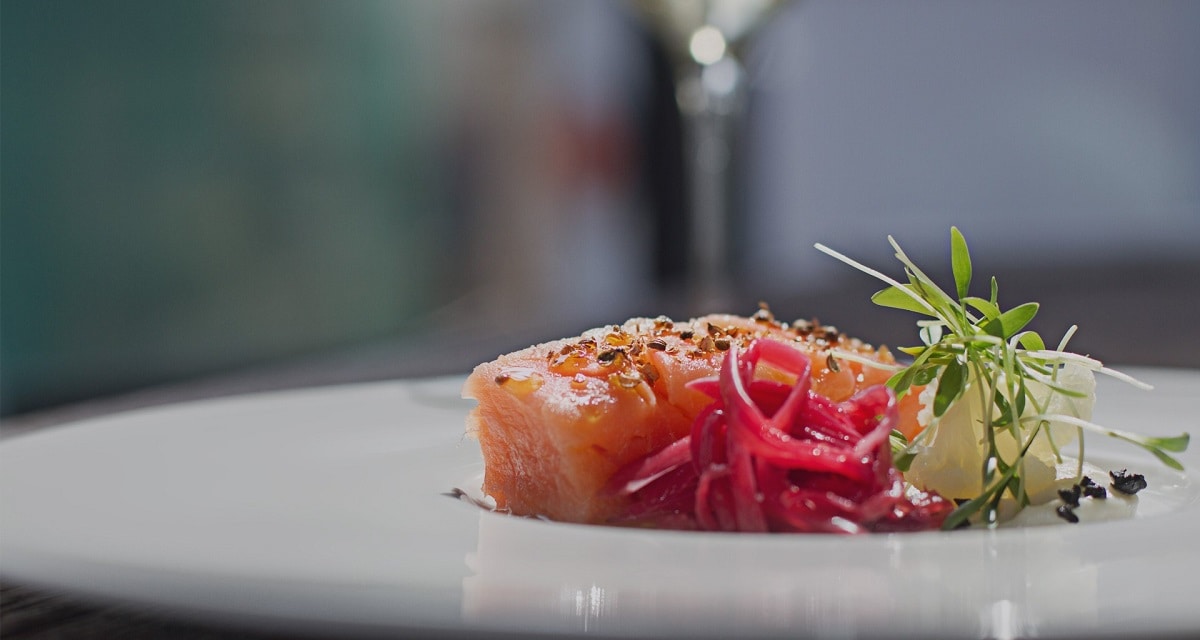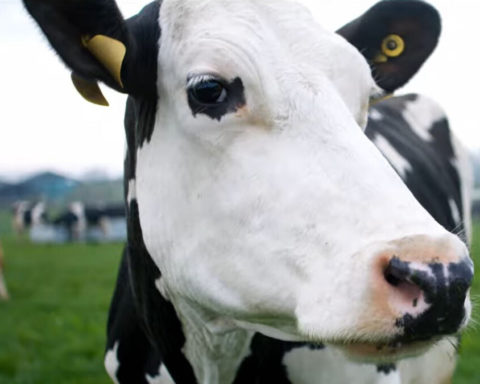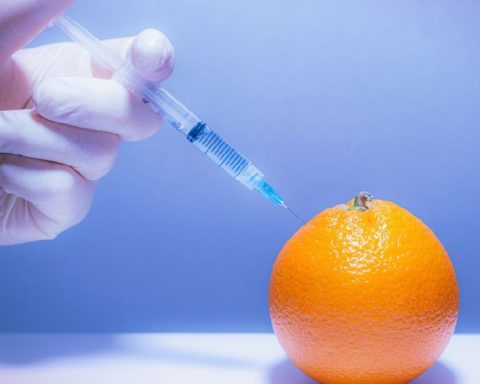Disruptions in agricultural commodity markets, lack of arms in the fields, inadequate protection of food workers against coronavirus: in a rare joint communiqué, the leaders of the three multilateral organizations in charge of food, health and trade, FAO, WHO and WTO, warn of the risk of a global food crisis. A risk of "food scarcity" on the world market does exist because of Covid-19-related disruptions in international trade and food supply chains. A crisis that "sets the record straight and raises the crucial question of France's food security". (1) according to the President of the FNSEA.
We must ensure that our response to the Covid-19 pandemic does not inadvertently create unwarranted shortages of essential commodities," says the WTO, UN and FAO." Uncertainty about food availability can trigger a wave of export restrictions, which in turn can lead to shortages on the world market.« In a rare joint statement, relayed by AFP, the Chinese Qu Dongyu, head of the Food and Agriculture Organization of the United Nations (FAO), the Ethiopian Tedros Adhanom Ghebreyesus, director-general of the World Health Organization (WHO), and the Brazilian Roberto Azevedo, head of the World Trade Organization (WTO), said in a rare joint statement.
For the three multilateral organizations dealing with global health, food and trade, it is "important"". to ensure trade, in particular in order to avoid food shortages« The text of the joint text received in Paris is shown in the table below, especially in the poorest countries.
Reminder: The IPCC predicted a food crisis if nothing is done
As indicated in the new report issued by the Intergovernmental Panel on Climate Change (IPCC), the impacts of climate change on land are such that they are on the verge of causing soaring food prices, which could lead to food insecurity. This new relationship highlights the links between climate change, desertification, land degradation, sustainable land management, food security, and greenhouse gas flows in terrestrial ecosystems (SRCCL). In its conclusions, it warns of the imminent emergence of a food crisis if carbon emissions remain unchecked, particularly in tropical and subtropical regions. Rising temperatures could also reduce the nutritional value of some crops and significantly reduce their yields, the report says.
It does not talk about a virus creating a pandemic, but it is the first to take a global approach to the interactions between the earth and the climate. For food systems, the report calls for a transition from industrial agriculture to more sustainable land management using techniques developed in organic and agro-ecological agriculture. « We must absolutely protect the quality of all the land used to produce food.says one of the main authors of the special report, Louis Verchot of the International Center for Tropical Agriculture.
This means stopping the degradation of soil, water, insect life or any other element of the biosphere from farmland to consumer plates," says Verchot.
What makes sense in this report is the immediate protection of the remaining forest areas," says Charlotte Streck, director of the think tank Climate Focus. She adds that the sharp rise in meat consumption in China and Asia is a real problem for forests and the climate. It is healthier for humans to consume less meat, and since 60 % of agricultural land is devoted to animal husbandry, reducing our meat consumption will free up a vast area for reforestation, she says. (Source : nationalgeographic.com)
From there, the relationship is very quickly made between this excessive consumption of meat of all kinds that can cause viral contamination.
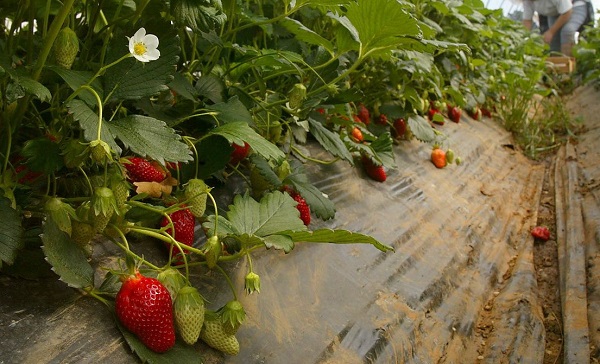
We don't have enough arms for the crops
The " slower movement of workers in the agricultural and food industry "is blocking many Western agricultures. With the closure of borders due to the coronavirus, they are all at the same time discovering that they are dependent on labour from elsewhere: Latin Americans in the United States, North Africans harvesting strawberries in Spain, European backpackers in Australia, Eastern European farm workers in the asparagus fields in Germany or France, etc...
For Aurélien Clavel, Vice President of Young Farmers, ". We are going into a harvest period - strawberries, spring vegetables - and generally we use foreign labour from outside the European Union. But this year we have a big problem because the seasonal workers are blocked at the EU borders. "
According to the French agricultural union FNSEA, the sector would need 200,000 people over the next three months. Its president, Christiane Lambert, announced on March 24 that she was launching a national platform called " arms for your plate ». Objective: to link farmers who need arms with volunteer workers to help a farm next door.
The FNSEA and the Young Farmers have also obtained the commitment of the main brands to promote French products, with the publication of a practical guide drawn up by the Ministry of Labour, in consultation with the players in the sector, which is distributed to companies and farms to provide solutions to guarantee safe working conditions for their employees in the face of the coronavirus epidemic.
Another platform has also been set up by the Ministry of Labour which, together with Pôle emploi, is dedicated to sectors with recruitment needs in this period. Candidates will be able to consult offers without creating an account and have direct access to the contact details of recruiters. Jobseekers or self-employed persons whose activity has been stopped are concerned by these job opportunities. Employees employed by companies whose activity is declining are also likely to meet the intense recruitment needs of the agricultural sector. A simple and exceptional system is designed to enable employees in partial activity to conclude an employment contract with a company in the sector. The employee will be able to combine his partial activity allowance with the salary of his employment contract in the agri-food sector, provided that his initial employer agrees to respect a 7-day notice period before resuming work.
As for the Minister of Agriculture, he believes it is important for farmers to continue to produce". to feed the French« . That's why he launched Tuesday, March 23rd. " a call to the army from the shadows of men and women "who" are no longer active "due to the coronavirus crisis," to join the great army of French agriculture« ...in search of manpower: " I appeal to the women and men who do not work, who are confined to their homes, who are waiters in restaurants, hostesses in hotels, hairdressers in my neighbourhood, who no longer have a job... And I tell them to join the great army of French agriculture, those who will enable us to feed ourselves in a clean, healthy way... ", he said.
140,000 volunteers have responded to this call to date. It is nevertheless necessary to set up their reception and working conditions because the different agricultural sectors require more or less technical skills, not to mention the essential safety precautions linked to the epidemic.
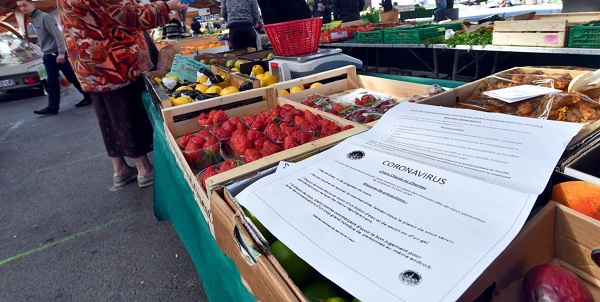
25 % of French markets reopen
For the trade union leader of MODEF, the priority should rather focus on reopening as many markets as possible to allow producers to sell their products directly. Prime Minister Edouard Philippe had announced the closure of food markets on 24 March, with the possibility of derogations for municipalities where there are no other outlets for selling fresh produce.
" Since the markets can now only accommodate food, this means that there is enough space to respect the distances between stands. We are able to organize and control flows, to enforce the distance and sanitary rules with frost at the entrance and exit, to make one direction of traffic. The exhibitors are all equipped with gloves and only they touch the products, unlike what happens in the vegetable or fruit stalls of supermarkets for example. ".
The MODEF has been heard since 25 % of the 10,000 food markets in France, covered or open-air, have been able to reopen since Monday 30 March, respecting strict sanitary protocols. These are mainly small markets with less than ten traders. However, no derogation for reopening has been granted to date in the following ten departments: Paris, Hauts-de-Seine, Seine-Saint-Denis, Haut-Rhin, Bas-Rhin, Haute-Marne, Hautes-Alpes, Var, Haute-Corse and Guyana.

Containers blocked at the borders
The " border delays for containers "of goods result in a" waste of perishable products and increased food wastage "said the three multilateral organizations responsible for food, health and trade. At the height of the coronavirus crisis in China, ships loaded with containers of powdered milk from Europe could not even be unloaded due to lack of manpower in ports, for example.
When we know that, over the last 15 years, France has increased its imports of chicken by more than 175 %, fruit by more than 67 %, vegetables by more than 50 %... In 2019, France saw for the first time that its imported volumes exceeded its exported volumes.
Moreover, while employees at the iconic American organic store Whole FoodsThe three international organizations also stress the need for "protection" for workers involved in food production, food processing and distribution, in order to "protect" workers from the coronavirus and to "protect the health of workers in the food processing and distribution industry". minimize the spread of the virus in the sector " and " maintaining food supply chains"
In times of pandemic, food has become a priority for hundreds of millions of confined people around the world.Their concern is as well to " minimize the spread of the virus " in this sector than " maintaining food supply chains« . In times of pandemic, food has become a priority for hundreds of millions of confined people around the world." When it comes to protecting the health and well-being of their citizens, countries must ensure that the full range of trade measures do not disrupt the food supply chain.« added the heads of FAO, WHO and WTO. « It is in times like these that international cooperation is essential.« they point out.
" We must ensure that our response to the Covid-19 pandemic does not inadvertently create unwarranted shortages of essential commodities and exacerbate hunger and malnutrition.« they conclude.
While some staple grain exporting countries may be tempted to hold back harvests for fear of missing crops or to drive down prices, others, more fragile at the other end of the global food chain, may face severe shortages, the three organizations warn. Market volatility could impact farms.
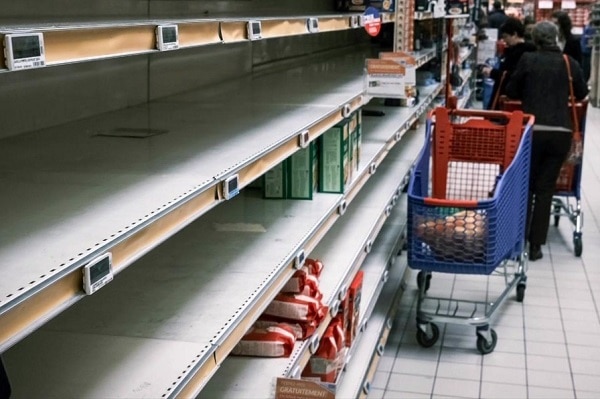
Wheat: a priority
Perhaps targeted by this warning, Russia, the world's leading wheat exporter, whose economy and agriculture ministers earlier this week defended a plan to limit Russian grain exports to 7 million tonnes between April and June, told AFP several brokerage firms on the European wheat market.
On Wednesday, pending government approval of the proposal, Russia decided to sell one million tonnes of wheat from its own reserve stocks on its domestic market to limit the rise in domestic prices, Agritel reported Wednesday morning. This is enough to take the pressure off. Indeed, the price of agricultural raw materials has exploded since the beginning of the pandemic.
For experts at the FAO, the UN agency responsible for food and agriculture, "export restrictions" sometimes lead to famines in other parts of the world.
After the financial crisis of 2007, " some rice-producing countries such as India and Vietnam placed export restrictions because they were concerned about rising prices, which in turn raised world prices and contributed to food riots in some developing countries "said Abby Abbassian, FAO chief economist, interviewed by phone by AFP in Rome.
The pasta shopping frenzy across Europe is having an unexpected consequence.The citizens have started to build up reserves as a precautionary measure since the coronavirus began to spread. « The pasta shopping frenzy that we are seeing throughout Europe has an unexpected consequence. Because of the epidemic, pasta purchases are so massive that they have pushed up the world price of wheat. "explains the economist François Lenglet (increase in cereal sales of 70%).And as consumers store, demand shifts to manufacturers, with storage being one of the most common behaviours across the globe.
World demand for wheat is therefore very strong. China has placed orders for several hundred thousand tonnes, and some countries are making strategic stocks, in North Africa for example: " Cereal markets continue to evolve in line with international demand, like Algeria, which is returning to wheat purchases, with a slight rebound in deliveries close to delivery, while prices (of the 2020 harvest) are stabilising. "commented Agritel in a note published yesterday, Tuesday 31 March.
" Conversely, the feed barley market is sinking, including the 2020 crop in the absence of demand. ", Agritel added. After all, close down bars and restaurants, cancel sports events, ... and beer consumption drops. « Faced with this fall in consumption, brewers have reduced their production, which has mechanically reduced the need for malt and therefore malting barley, leading to a spring barley that is struggling to keep up with the current small bull market panic." explained the terre-net site.
" According to Li Zhao Yu of the France Export Cereals China office, beer consumption in China has fallen by 70% since December due to restrictions on public gatherings, which could impact the malting barley market. ", we read in FranceAgriMer's " conjoncture céréales " bulletin.
A shift towards private, home-based consumers is a way out for brewers, especially local artisanal mini-brewers, such as Coconino which took the initiative to create an online sales site to deliver its customers in Paris and the suburbs.
François Lenglet explains: " In fact, the States do exactly the same thing as the basic consumers, they take their precautions. But for the moment, there is no supply problem, only prices are going up. "
Except for Danone CEO Emmanuel Faber, " There are many areas of tension, due to staff absenteeism with great vigilance on transport and packaging. » For him, we need to rethink our food sovereignty, but above all, we need to reconsider our relationship with nature.
" We're just at the beginning of this crisis...« The economist Abby Abassian believes that this is not a production crisis, but above all a transport and logistics crisis. According to him, the situation in India will be decisive for the future. « Harvest starts in a few weeks, the fluidity of the goods must be ensured."
Otherwise, there's still the family vegetable garden! Still, it is necessary to find plants and seeds in this period of confinement. This is why, in Creuse, after several days of discussion, the horticulturists' union and their member of parliament managed to obtain a dispensation from the prefecture on March 27th to sell the vegetable plants. The aim is to preserve food for the whole population and to enable private individuals who have a garden to grow their own fruit, vegetables and aromatic plants.
On Wednesday 1 April, during questions of control of the government in the Senate, the Senator of Maine-et-Loire Emmanuel Capus also questioned the Secretary of State to the Minister of the Economy and Finance, Agnès Pannier-Runacher, on the need to maintain the services essential to the functioning of the country, in particular the current situation of horticulturists:". In order to ensure food continuity, there must still be producers, and in this respect, horticulturists will have to throw away their production", offering him a solution: "To give them some air, could you allow them to market their garden plants that are the food for the next few months? "
The Secretary of State replied that " Within the framework of the arbitrations that we have just taken, the sale of vegetable plants is considered as a purchase of basic necessities. ", paving the way for the commercialization of these products. (Source : my-angers.info, 01/04/2020)
It's up to the other French regions to follow ... and to the French who can do it to really go green.

(1) Interviewed by LSA, 19/03/2020

